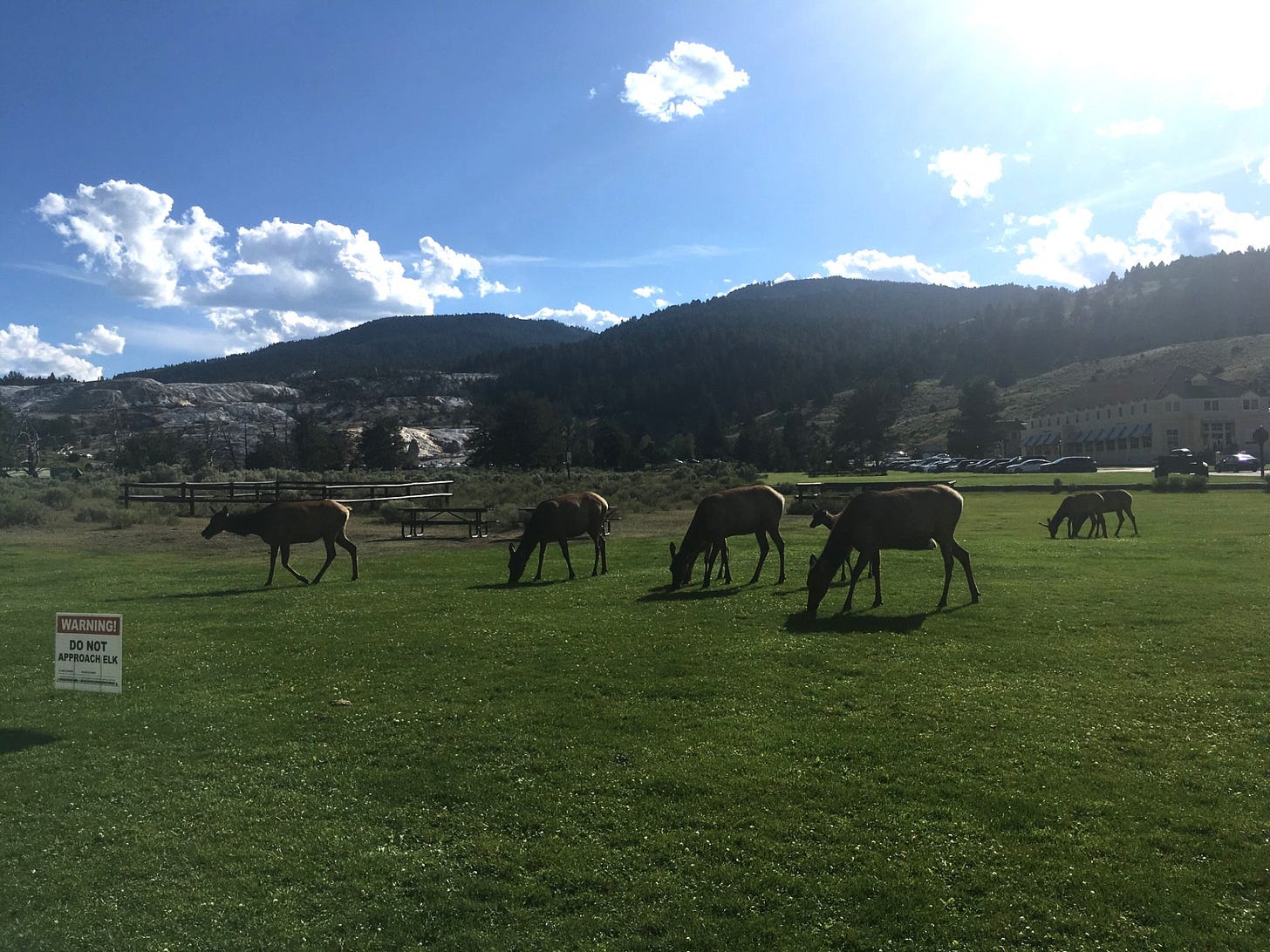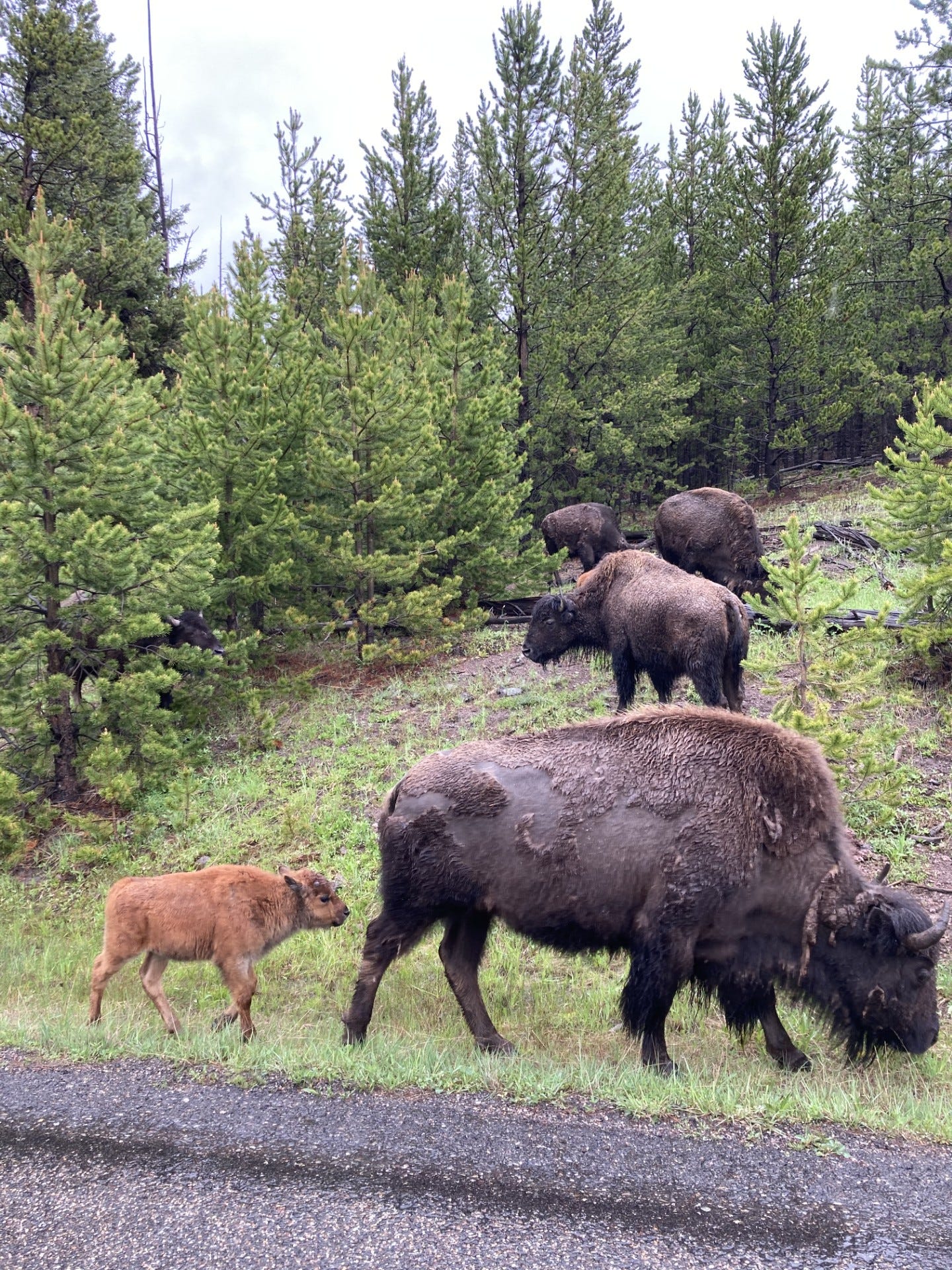The campaign to destroy the federal government from the inside is revealing something hidden and immensely valuable. We have been entrusting our lives to noble federal employees, and we might not even have noticed.
It turns out that so called “deep state” “bureaucrats” live and work in every state where they provide essential services. We need these individuals. We rely on their depth of experience, wealth of knowledge, and honed skillsets. Federal workers inspect our food supply and secure our transportation systems. They protect our public lands and personal safety. They ensure that our elders’ social security checks arrive in the mail. They archive, curate, safeguard, and share a wealth of historical records and cultural treasures. They distribute funds that enable the educational support of all our kids, no matter their abilities or disabilities.
Civil service employees weave an invisible net that supports countless necessary and meaningful aspects of our lives. We share an interdependence with these folks who have devoted themselves to nonpartisan government service. Now, tens of thousands of them have been unjustly and capriciously fired and are facing financial and psychological strain as a result. Those who still work for the federal government live with anxiety about when that next cold-hearted “you’re fired” email will appear, which surely impacts their mental health and job performance. It is wrong that so many good people are made to suffer in this way. We, too, will suffer for the loss of them in these critical roles.
I don’t think Americans noticed all that federal employees do for us before this travesty happened. Now we see how interlinked our lives are with theirs. I’ll offer the National Park Service as an illustration of this point. My husband and I have been National Parks visitors for decades. We got married at Lake McDonald Lodge in Glacier National Park (where a long line of strangers congratulated us and spontaneously gave us gifts; it was magical), and we have been back to Glacier nearly every summer since, together and then with our children. For the past decade, we have regularly visited Yellowstone National Park, as well, often bringing family and friends from the Midwest and Northeast along to gaze in wonder at bison and bear cubs. Once an employee at Yellowstone may have saved our lives by directing our movements when we—including our kids ages 10, 10 & 5—suddenly came within twenty yards of a foraging grizzly bear. (Thank you, Ranger!)
These awesome places are special to my family (which I have written about in The Atlantic). They are also special to the history and identity of this country (a fraught history, I know, but let’s set aside that critique for now).
When Elon Musk and DOGE eliminated National Park Service and National Forest Service jobs, they triggered an uproar in red-state Montana. Residents and local business owners came out to protest cuts to the National Park Service. Even one of my socially conservative, formerly Republican voting relatives (a long story) began calling elected representatives to complain about these DOGE cuts. People on the ground in Montana realized that if our National Parks and public lands are not properly cared for, visitors will be at greater risk, animals and plants will be more vulnerable, and the tourism industry could tank. And Montanans were not alone. A few weeks ago, in early March, nationwide protests erupted in defense of National Parks and their caretakers.
Americans are starting to realize that federal employees-R-Us. That is, federal employees live in every region of this country. They raise families, pay taxes, shop on Main Street, and contribute to community organizations and houses of worship. Stripping away their livelihoods to give tax cuts to billionaires reduces the circulation of money in local places. Everyone pays a price when federal employees lose their jobs.
This heightened perception of our interdependence with civil service employees is a gift of understanding that the current administration did not intend for us to receive. Now that we recognize the critical importance of these individuals and the principled work they have done on our collective behalf, we can appreciate them and support them more robustly. Civil Service, we see you, and we should never have taken you for granted.
PS
While I initially conceived of writing this post to explore the notion of positive interdependency between a principled civil service and the people, I cannot end without mentioning a dangerous kind of dependency that is also being exposed in this moment—the dependency of our universities on federal funds. It turns out that America’s institutions of higher learning, even the oldest, wealthiest and most elite among them, are reliant on the federal government to sustain basic operations. In the past, this financial relationship has supported university activities, including life-saving research in medicine and the sciences and life-giving productivity in the humanities and arts. Now that Trump has politicized government grants and payments for higher education, academic independence is falling away.
Columbia University's concession to Trump’s demands just to open negotiations is a chilling reflection of this long-standing financial dependency that has morphed into a terrible weakness. What will it mean for freedom of thought and expression when a US president can dictate how universities conduct their affairs based on his (and his Project 2025 allies’) ultra conservative ideological goals? (Yes, antisemitism is morally wrong and should be uprooted, but this charge is being used as a smokescreen to diminish the right to free speech and facilitate a partial government takeover of academia.) Will universities shutter all area studies programs (ethnic studies, environmental studies, etc.) and approve only “western civilization” syllabi to keep the lights on? Will they create campus headquarters for ICE? Will they require Bible courses? Will they stop admitting women because Trump says so? All of this speaks to the need for us to strengthen healthy interdependencies and buffer unhealthy dependencies that underlie our public and professional lives.
Takeaways:
-Check out the cheeky Alt National Park Service social media “resistance” project that launched in 2017 after Trump’s first term began. They are also on Bluesky.
-Question: I wonder who will launch an alt2026 or shadow2026 project to parallel what is surely to be a narrow-minded, top-down, (or even worse) commemoration of the country’s 250th anniversary?
-I learned more about the civil service on The New Yorker Radio Hour Podcast, “We The Builders,” 3/18/25.
-Websites to visit if you are a federal employee or want to support them:
-I always feel obliged to tell you when I am working without an editor. (Yikes!) This is one of those times.







The pain imposed upon current and now recently fired federal employees that spreads across the country is felt acutely here in the suburbs of DC. Support groups are active in churches, social services agencies, and community organizations. Fear is everywhere: What do we do now? Where do we go? Can I support my family? What about the children?
Last Thursday, I was at the Post Office, dropping off our tax return to send by certified mail. As the transaction was nearing completion, I cynically said to the clerk, a familiar face I’d seen often over the years, “I’m getting this done early; I just don’t know what trouble’s coming next,” hinting at Trump’s latest and promised destruction throughout government and society. She paused a moment and then leaned her head around the Covid shield. I leaned in, too, as I sensed she was anxious to share something of herself. “We [all the postal workers there] are so afraid. I’ve been here so many years. What he’s [Trump] is doing is so-o-o wrong.” I said something I hoped might show empathy as I left the counter for the next person waiting in line.
I read the stories in the news and the posts on Facebook. I talk to neighbors and call friends and family who are or might know of someone fired, purged, erased, and suffering the trauma of quick fixes to “unnecessary excess and fraudulent” federal government.
Before retiring a decade ago, I worked for a contractor working for the Department of Education. I knew many DoED employees individually and worked with Dr. Peggy Carr and her team, all career federal employees. The mission: help improve the nation’s public education system and children directly. All workers were dedicated and hard-working, apolitical, neither fraudsters nor wasteful of public money. Their DoED office was just closed by DOGE; I don’t know if any of these employees were thrown away or could survive in different roles. Permanent damage to individual careers and institutions will negatively impact all Americans. The brain drain alone may never recover. But the purge goes well beyond the top levels; the clerks and receptionists and drivers and cleaning crews and lunch vendors, many of marginal economic circumstances and minority status, get hurt in the ripples. Make no mistake; this is a white supremacist-inspired putsch threatening not only ordinary individuals but the environment, social order, and all humanity. I cannot look away.
For years, each Christmas season, I went outside to the street curb early on trash day to wait for the sanitation trucks (one for recyclables, another for yard waste, yet another for all the rest). Throughout the year, I noticed these workers performing really dangerous, dirty, thankless, and underappreciated work—and on my behalf! I waved the trucks to a stop, said how I saw them, really saw them, and said how much I appreciated them and their work. I handed each individual a Jackson. (In 2022 it was a Jackson and a Jefferson to mark that specific year—that brought whoops.) Then, just a week ago, on trash day, as I was sipping a coffee inside, I heard someone rolling the empty trash containers down my long driveway. I jumped up and ran outside. I met one of the guys who was bringing my cans up to the carport. I said, “I appreciate that, but you really don’t have to do that.” He replied, “We do this only for someone we appreciate.” He smiled, turned, and sprinted for the truck that had already moved down the street to another house. I had acknowledged his/their dignity and humanity months and years earlier. Now, this government worker, whose labor is unheralded yet so essential, was giving me his gift of recognition. I wonder if anyone else in the neighborhood has said thank you to those sanitation workers, those other government workers— local, state, and national—who serve our many public needs. We take them for granted . . . until they are gone. It seems to me they need our understanding and extra support right now as we figure out how to stop the madness coming from on top.
A wonderful piece, Tiya. Wanted to let you know that at the Autry Museum in LA, we’ve been working on an exhibition for 2026 titled, “Life, Liberty and LA,” which will be a response to the 2026 commemoration from the point of view of Los Angeles. We will be highlighting stories of Angelenos who have worked together, sometimes in unexpected ways, to claim the rights to life, liberty and the pursuit of happiness. I hope you will come and see it when we open in May 2026!